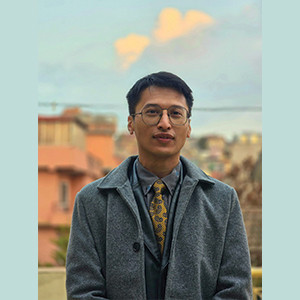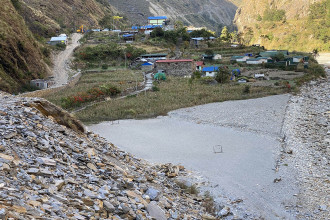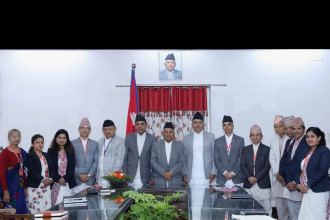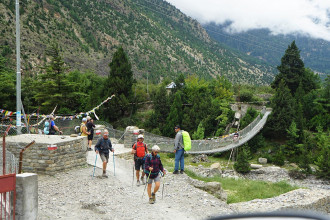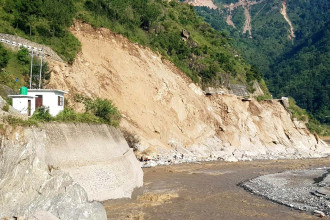-1744524681.jpeg)
KATHMANDU: Nepal Institute for International Cooperation and Engagement (NIICE) hosted guest speaker and research fellow at the Manohar Parrikar Institute for Defence Studies and Analyses (MP-IDSA), Nihar R Nayak, author of 'Nepal: The Making of an Inclusive Constitution – Demands, Debates and Dissents', for two events on April 9 and 10. MP-IDSA is India’s premier think tank under the Ministry of Defence, focusing on defence, security, and international affairs.
In the programme held in Lalitpur on April 9, Nayak discussed India-Nepal security cooperation. He concluded that despite border disputes and political instability, the relationship between the two nations remains resilient. He emphasised the critical role played by the armed forces of both countries in resolving misunderstandings during the ‘unofficial blockade’ and trade deficit. The event was moderated by Deepak Prakash Bhatt, a former Member of Parliament in Nepal and a current security expert.
-1744524681.jpeg)
During the book discussion on April 10, Nayak addressed the ethnic divide that obstructs access to the rights guaranteed by Nepal’s constitution. His talk centred on his book, 'Nepal: The Making of an Inclusive Constitution – Demands, Debates and Dissents'. The book, yet to be made available in Nepal, provides an in-depth analysis of Nepal’s political transition, from before the promulgation of the seventh constitution drafted by a democratically elected parliament to its current iteration after amendments.
Nayak observed that the constitution, modelled after the Irish framework, has one notable flaw: it creates, as he described, 'drama in the power struggle' by having one party in power and the other in opposition. Although Nepal’s civil society has received strong organisational and international support—particularly from EU member states and NGOs—Nayak identified the lack of substantial pressure on Kathmandu’s political elite, due to internal divisions and alignment with upper-caste-dominated parties, as factors hindering inclusivity in Nepal.
While acknowledging that no constitution is flawless, as constitutions reflect the imperfections of those who draft and uphold them, Nayak praised Nepal's constitution as progressive and well-drafted. He highlighted its advancements in areas such as proportional representation, language rights, and citizenship, particularly through subsequent amendments.
On recent conflicts and the rise of monarchist sentiment in Nepal, Nayak recommended inaction, citing the constitution as strong enough to resist such power grabs. However, he noted that turmoil and dissent are unlikely to be mitigated through inaction. Instead, he suggested that efforts to appease highly agitated groups through incremental positive impacts may be more effective. While the current climate is incomparable to the Maoist insurgency of 2008, Nayak raised a critical concern, stating that instability and public protests could halt the flow of tourism in Nepal during this crucial season, thereby affecting revenue.
Nayak also recommended the need for credible and formal mediators in Nepal to act as envoys to India for conflict resolution through diplomacy. The event was moderated by Pramod Jaiswal, the Research Director of the Nepal node of The Millennium Project.
READ ALSO:

